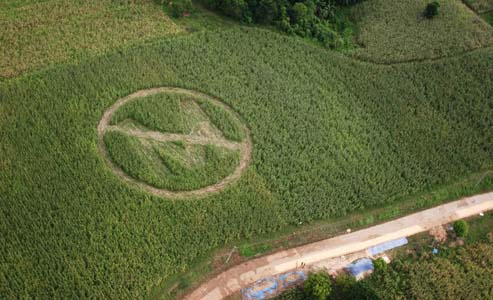Related articles:
Exposed: the great GM crops myth:
“Genetic modification actually cuts the productivity of crops, an authoritative new study shows, undermining repeated claims that a switch to the controversial technology is needed to solve the growing world food crisis.”
BIODIVERSITY: Privatisation Making Seeds Themselves Infertile
U.S. using food crisis to boost bio-engineered crops
____________________________________________________________________________________________
Heather Meek leafs through the seed catalogue she wrote on the family computer, on winter nights after the kids went to bed.
There are Kahnawake Mohawk beans and Painted Mountain corn; Tante Alice cucumber and 40 varieties of heritage tomatoes.
Selling seeds is more than just an extra source of income on this organic farm an hour northwest of Montreal.
For Meek and partner Frederic Sauriol, propagating local varieties is part of a David and Goliath struggle by small farmers against big seed companies.
At stake, they believe, is no less than control of the world’s food supply.
Since the dawn of civilization, farmers have saved seeds from the harvest and replanted them the following year.
But makers of genetically modified (GM) seeds — introduced in 1996 and now grown by some 70,000 Canadian farmers, according to Monsanto, the world’s largest seed company — have been putting a stop to that practice.
The 12 million farmers worldwide who will plant GM seeds this year sign contracts agreeing not to save or replant seeds. That means they must buy new seeds every year.
Critics charge such contracts confer almost unlimited power over farmers’ lives to multinational companies whose priority is profit. They say GM seeds are sowing a humanitarian and ecological disaster.
But Trish Jordan, a Canadian spokesman for Monsanto, explains that requiring farmers to sign “technology use agreements” allows companies to recoup the cost of developing products.
“Farmers choose these products because of benefits they provide,” Jordan says. “That’s why we’re successful as a company.”
The debate over GM seeds has come into sharp focus as the world faces a food-price crisis that threatens to push millions into starvation.
Read moreAt stake is no less than control of the world’s food supply.
